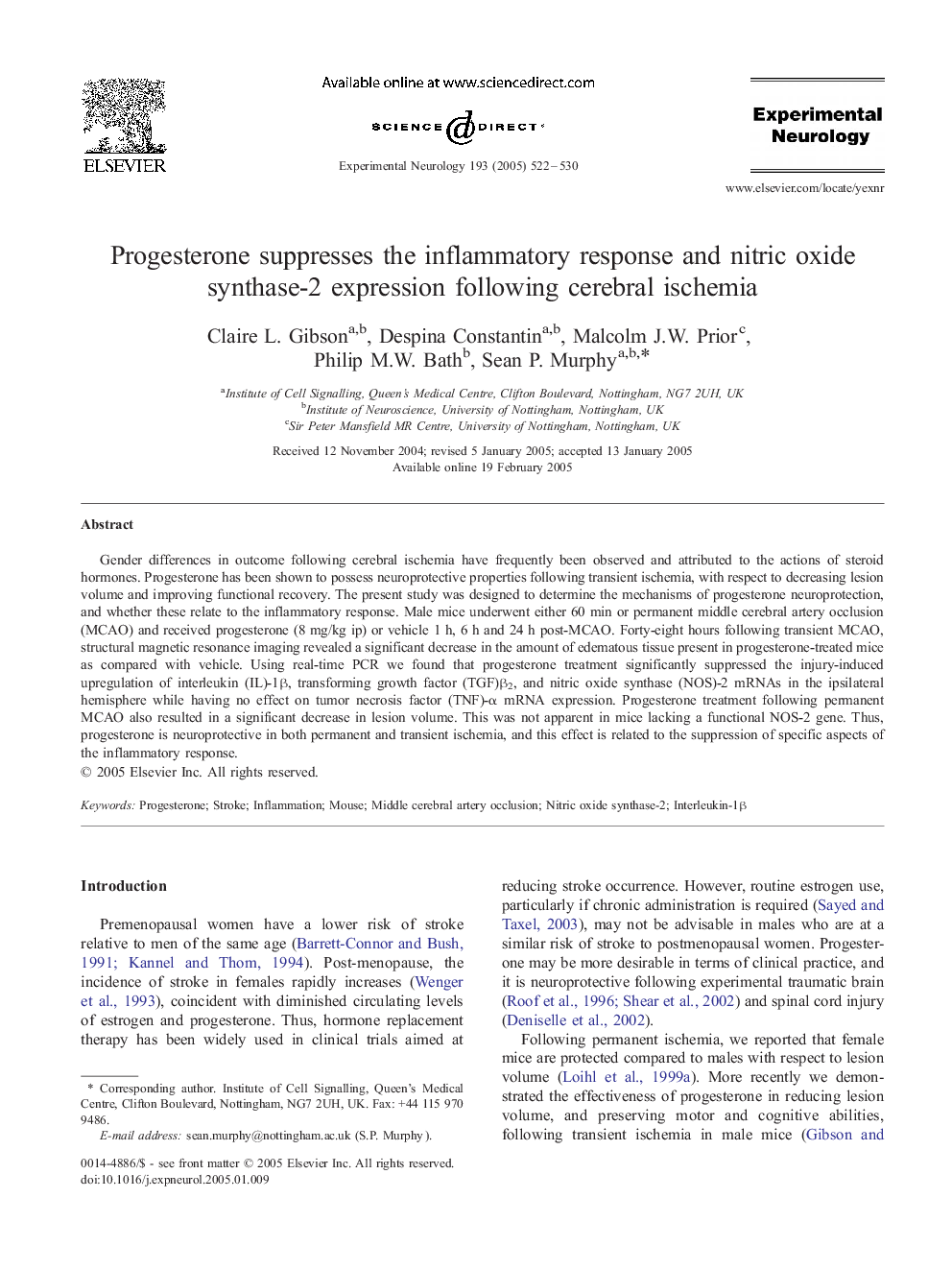| Article ID | Journal | Published Year | Pages | File Type |
|---|---|---|---|---|
| 9191895 | Experimental Neurology | 2005 | 9 Pages |
Abstract
Gender differences in outcome following cerebral ischemia have frequently been observed and attributed to the actions of steroid hormones. Progesterone has been shown to possess neuroprotective properties following transient ischemia, with respect to decreasing lesion volume and improving functional recovery. The present study was designed to determine the mechanisms of progesterone neuroprotection, and whether these relate to the inflammatory response. Male mice underwent either 60 min or permanent middle cerebral artery occlusion (MCAO) and received progesterone (8 mg/kg ip) or vehicle 1 h, 6 h and 24 h post-MCAO. Forty-eight hours following transient MCAO, structural magnetic resonance imaging revealed a significant decrease in the amount of edematous tissue present in progesterone-treated mice as compared with vehicle. Using real-time PCR we found that progesterone treatment significantly suppressed the injury-induced upregulation of interleukin (IL)-1β, transforming growth factor (TGF)β2, and nitric oxide synthase (NOS)-2 mRNAs in the ipsilateral hemisphere while having no effect on tumor necrosis factor (TNF)-α mRNA expression. Progesterone treatment following permanent MCAO also resulted in a significant decrease in lesion volume. This was not apparent in mice lacking a functional NOS-2 gene. Thus, progesterone is neuroprotective in both permanent and transient ischemia, and this effect is related to the suppression of specific aspects of the inflammatory response.
Keywords
Related Topics
Life Sciences
Neuroscience
Neurology
Authors
Claire L. Gibson, Despina Constantin, Malcolm J.W. Prior, Philip M.W. Bath, Sean P. Murphy,
